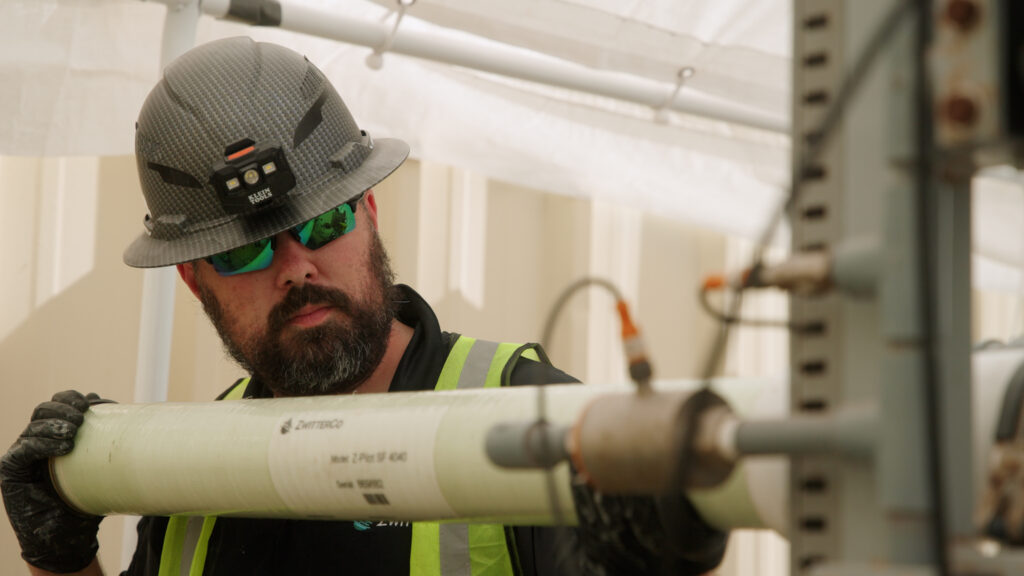The meat and poultry processing industry faces increasing pressure to manage wastewater discharges effectively. Recent high-profile enforcement actions and penalties underscore growing scrutiny by the U.S. Environmental Protection Agency (EPA). With potential changes to wastewater discharge regulations being discussed for 2025, now could be a good time for processors to start evaluating and strengthening their wastewater strategies.
Why EPA Standards are Tightening
The upcoming regulations specifically target pollutants such as nitrogen, phosphorus and organic matter. The EPA projects implementing these regulations will significantly reduce pollutant discharge from meat and poultry facilities, curbing environmental harm. For meat and poultry processors, these changes introduce significant operational challenges. However, with the right treatment technologies, companies can stay ahead of compliance risks while avoiding costly penalties, operational disruptions, and reputational setbacks. ZwitterCo offers solutions that help facilities meet these evolving standards efficiently and sustainably.
Unique Challenges of Organic-Rich Wastewater
Wastewater from meat and poultry processors is particularly challenging due to:
- High loads of fats, oils, and grease (FOG)
- Blood proteins and fine organic particles
- Cleaning agents and sanitizers
- Variable flow and contaminant composition across shifts
These complex constituents overwhelm traditional treatment methods and lead to rapid membrane fouling in conventional direct filtration processes. Fouled membranes result in reduced throughput, increased downtime, and more frequent chemical cleanings – pushing operating expenses higher and putting compliance at risk.
2025 EPA Regulations: What’s Changing?
The EPA estimates that the proposed rule would reduce pollutants discharged through wastewater from meat and poultry facilities by approximately 100 million pounds per year. However, compliance may entail substantial costs.
According to industry analyses, the U.S. poultry sector alone could face compliance costs of up to $1.6 billion annually, potentially leading to the closure of some facilities and significant job losses.
The new EPA effluent guidelines set to take effect will require:
- Lower discharge limits for nitrogen, phosphorus, BOD, and suspended solids
- Advanced treatment stages beyond biological systems
- Enhanced monitoring, reporting, and documentation
- Use of Best Available Technology Economically Achievable (BAT)
Plants that fail to comply face increased EPA enforcement, including fines, legal action, and in severe cases, mandatory shutdowns.
Addressing the Challenge: Fouling-Resistant SF for the Hardest Waters
At the heart of effective wastewater polishing lies the membrane system – and that’s where many meat & poultry processors face significant challenges.
Fouling-resistant Superfiltration (SF) membranes are specifically engineered for:
- High-organic, variable-load wastewater
- Stable performance under aggressive fouling conditions
- Less cleaning, less chemicals, less downtime
- Better permeate quality than UF, supporting compliant discharge or reuse
By minimizing fouling and downtime, SF membranes help plants:
- Meet EPA standards consistently
- Avoid fines and enforcement issues
- Reduce chemical and energy costs
- Strengthen operational reliability and ESG metrics
- Simplify the unit operations required to meet discharge limits, minimizing operational risk and operator responsibilities
Don’t Wait for a Violation to Upgrade
The imminent 2025 EPA regulations present both a compliance challenge and an opportunity for operational improvement. Meat and poultry processors investing in advanced membrane technology today can avoid costly violations, reduce operational expenses, enhance water reuse capabilities, and demonstrate environmental stewardship.
Proactively adopting technologies like ZwitterCo membranes positions facilities for resilient, compliant operations and long-term success in an increasingly regulated environment.
Want to learn more about our membranes? Contact us today.


